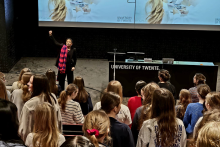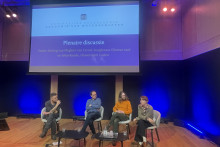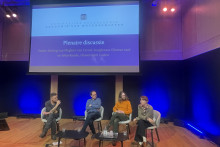Lack of job security, the tough battle for research funding and the high workload are major reasons for both men and women on temporary contracts to turn their back on science, according to a study commissioned by the Ministry of Education, Culture and Science at the request of the House of Representatives.
The aforementioned complaints are generally stronger among women quitting the world of science. Having children, a lack of clarity about assessments and rewards, and a poor work/life balance are additional factors mentioned more often by women than by men.
Desire to have children
Moreover, women on temporary contracts are more vulnerable to unequal treatment and discrimination than women on permanent contracts. It emerges from the study that many are asked explicit questions about their desire to have children and get negative reactions if they become pregnant. Such experiences can reinforce the other reasons for quitting.
The researchers have based their conclusions on a survey with responses from 500 female and male scientists and interviews with 40 women. They include academics who are still working in science as well as some who had already dropped out.
More parental leave
The researchers say that to reduce the drop-out rate among all scientists there need to be better employment terms and conditions. It makes a difference to women specifically if employers give more parental leave to men as well. Other helpful measures are training courses for supervisors and tackling unconscious prejudices.
According to Minister of Education Robbert Dijkgraaf, the findings of the report are in line with studies such as that conducted recently by the Royal Netherlands Academy of Arts and Sciences into social insecurity in the Dutch scientific community. He will come back to this issue later this year when he presents his new security policy.








